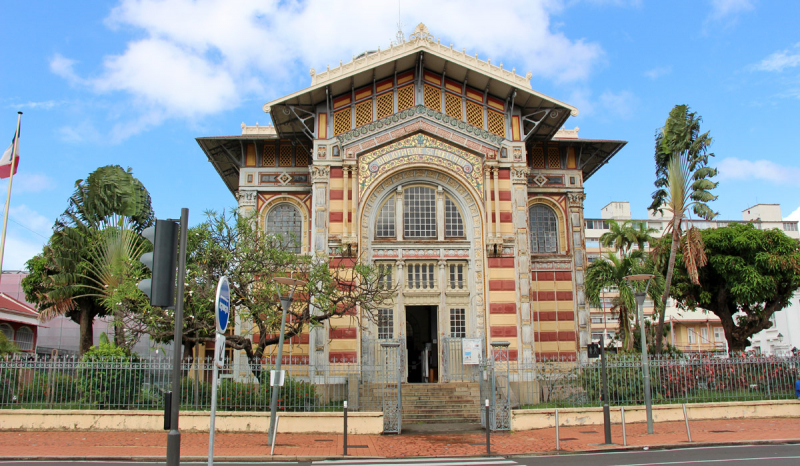Schoelcher library
Toplist's top 7 Most Beautiful Historical Sites in Martinique begins with a visit to Fort-de-France, the busy capital city with vivid squares, streets, spice shops, restaurants, and, most notably, the Schoelcher Library.
This library was founded on the initiative of Victor Schœlcher, a well-known abolitionist. He was also a man who devoted his life to fighting slavery with many famous works. He was also a senator of Martinique involved in drafting the annulment decree of 1848. And to demand the construction of a public library in the colony, he donated his private library of over 250 music and 9,000 books to the General Assembly of Martinique in 1883.
The Schoelcher Library, a pioneering building of that period, was designed by architect Henri Picq in 1884. In fact, it is a historical monument that was planned to be built in 1973. Not only that, but it is also successful in combining various building materials such as concrete. Iron and wood are intended to counteract the risk of subsidence of the swampland of the town of Fort-de-France, as well as extreme Martinique weather conditions such as hurricanes and earthquakes. Therefore, the Schoelcher library is the most prominent library in the town of Fort-de-France thanks to the quirky architectural style borrowed from many different schools reminiscent of the colonial period of that time.
The Schoelcher Library serves two major purposes including preserving heritage records relating to Martinique and the Caribbean, and its environment and also transmitting local collective memories. As a result, the Schoelcher library is considered Martinique's reference heritage library. In addition, the library also contributes to the development of reading and cultural activities throughout Martinique. Libraries ensure citizens access to information and train them in the fight against illiteracy.
The Schoelcher library contains an exceptionally rich collection of historical heritage. It offers people the opportunity to explore or study all the economic, political, literary, and social aspects of the French and Caribbean revolutions from the 16th century to the present day. Therefore, it is not only a tourist destination but also a place for learning and research, as well as developing encyclopedia collections.
All rare items related to Martinique's history are carefully preserved and kept in the best possible condition such as handwritten letters, typewriter, workbooks, and drafts of works. published, itinerary notes, postcards, plans, photos, prints, tracks, books, geographic maps, past exhibitions, etc. That ensures that visitors will have the most realistic and wonderful experience when they come and experience one of the 7 Most Historical Sites in Martinique.








